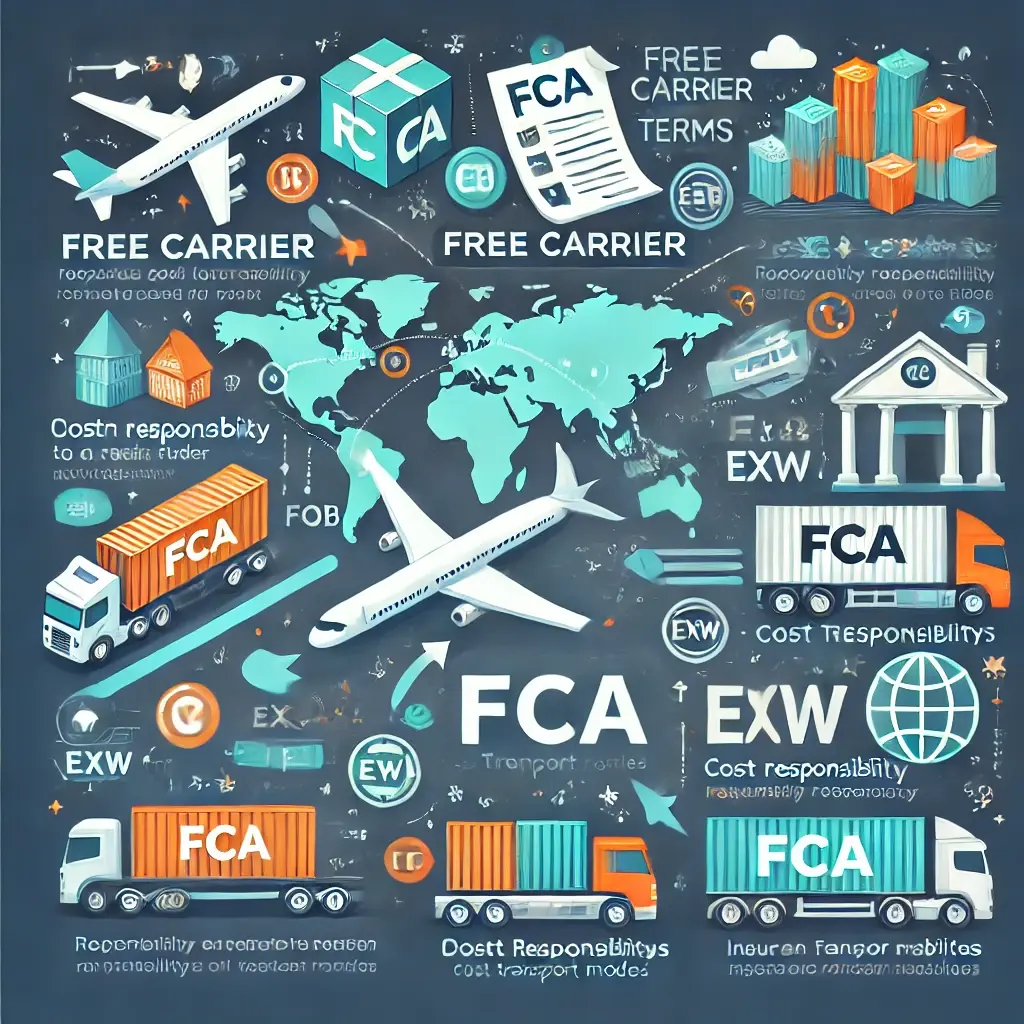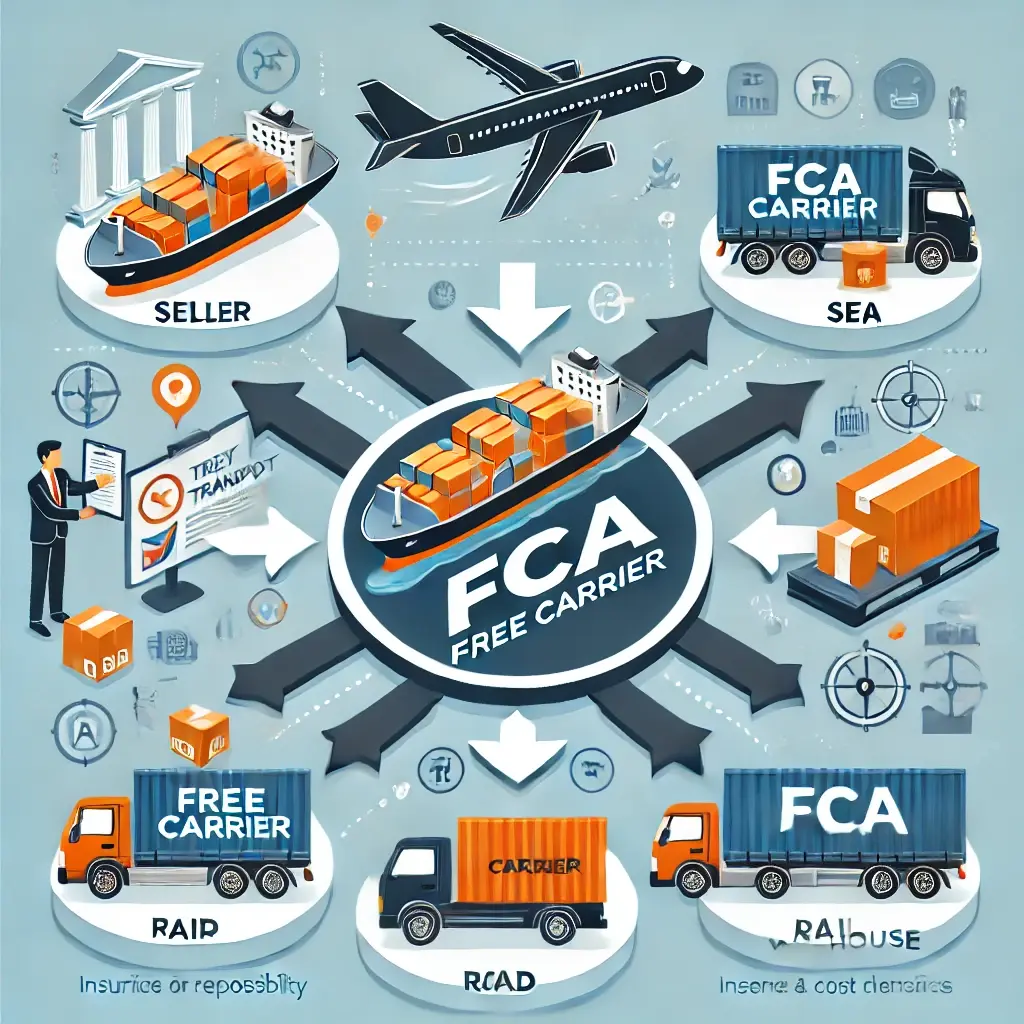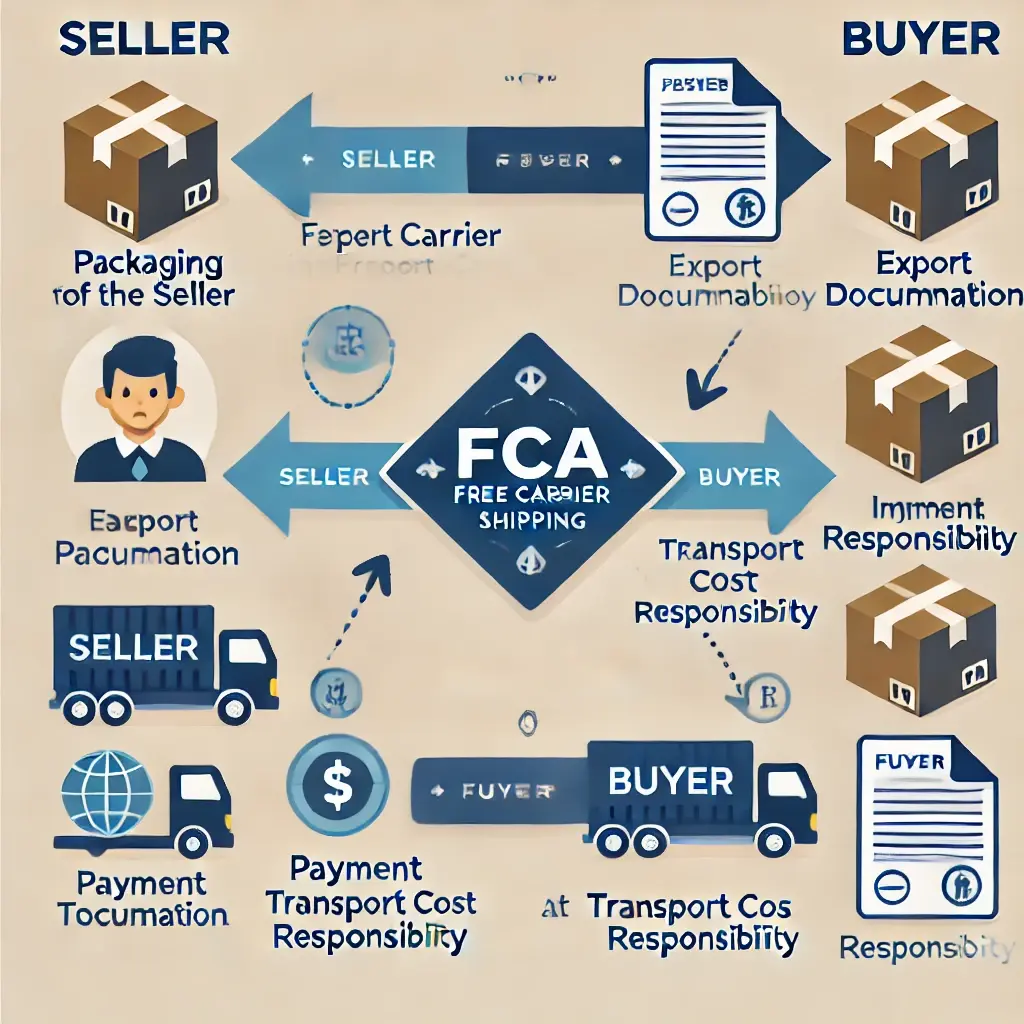Hey there! Are you puzzled by shipping terms and looking for a quick way to understand FCA shipping? You’ve landed in the right spot! As an SEO expert crafting content for businesses like yours, I’m here to break down everything you need to know about FCA (Free Carrier) shipping in a simple, engaging way. Let’s kick things off with the most valuable info you’re probably searching for—right at the top!

Featured Snippet Alert: What is FCA Shipping in a Nutshell?
- Definition: FCA (Free Carrier) means the seller delivers goods to a carrier or a place you choose, then you take over.
- Key Fact: The seller covers costs and risks until the carrier has the goods. After that, it’s your responsibility.
- Why It’s Popular: It’s flexible—works for air, sea, road, rail, or even a mix of transport modes.
Got a shipment on your mind? Stick with me, and I’ll guide you through FCA shipping step-by-step. Ready to dive in?
Your Ultimate Guide to FCA Shipping: Let’s Get Started!
Hi! Are you new to shipping and feeling swamped by acronyms like FCA, FOB, or EXW? Don’t sweat it—I’ve got your back. FCA shipping is a must-know term if you’re moving goods across borders. Why? Because it can save you money, time, and stress. In this guide, you’ll learn what FCA means, how it works, and why it might be perfect for your next shipment. Plus, I’ll throw in some handy tips to keep you hooked. Let’s go!
1. What Does FCA (Free Carrier) Shipping Mean for You?
Picture this: You’re buying products from a supplier overseas. You agree on a price, but who handles the shipping? That’s where FCA shipping shines. Here’s the deal:
- The seller gets the goods to a spot you pick—like a port, airport, or warehouse.
- They hand the goods to a carrier (the company moving your stuff).
- Once the carrier has it, you take charge of costs and risks—like shipping fees and insurance.
Why should you care? FCA splits the work clearly. The seller does the early heavy lifting, and you handle the rest. Plus, it’s versatile for any transport type. Pretty cool, right?

2. What Transport Options Can You Use with FCA?
One reason FCA shipping rocks? It fits any transport mode. So, what’s your best pick? Check out these options:
- Road: Common and nearby? The seller loads, you unload.
- Rail: Got bulky goods? This works well.
- Sea: Perfect for overseas shipping to ports.
- Air: Need it fast? Air freight’s your friend.
- River: Heavy items? Cost-effective and smooth.
- Multimodal: Mix it up—like sea then rail.
Quick question: What are you shipping? If it’s urgent, go air. If it’s heavy and you’ve got time, try sea or river. FCA adapts to your needs!
3. Who Handles What in FCA Shipping?
Confused about responsibilities? Let’s sort it out. With FCA shipping, here’s who does what:
Seller’s Job:
- Packs the goods and gets them ready.
- Handles export paperwork—like customs forms.
- Delivers to the carrier at the agreed spot.
- Covers costs and risks until the carrier takes over.
Your Job (Buyer):
- Pay the seller as agreed.
- Manage import paperwork—like customs at your end.
- Pay for shipping and insurance after the carrier has the goods.
Pro Tip: Double-check your import docs before the goods arrive. It’ll save you headaches later. Sound fair?

4. FCA and Incoterms: Why It’s a Big Deal
Ever heard of Incoterms? They’re global rules that keep shipping smooth. FCA is one of them, set by the International Chamber of Commerce in 2010. Here’s why it matters:
- No confusion: Everyone knows their role.
- Worldwide use: From Asia to America, FCA works the same.
Fun Fact: FCA replaced older terms to make shipping easier. So, you’re using a modern, trusted standard. Neat, huh?
5. How Does FCA Stack Up Against Other Terms?
Wondering how FCA shipping compares to FOB or EXW? Let’s break it down:
- FCA vs. FOB: FCA works for all transport; FOB is just sea. Need flexibility? Pick FCA.
- FCA vs. EXW: FCA has the seller handle export; EXW puts it all on you. Want less work? Go FCA.
- FCA vs. DAT: FCA shifts responsibility at the carrier; DAT goes further to a terminal. Prefer control? FCA’s your match.
Which fits you? If you like splitting duties evenly, FCA shipping is a winner. What do you think?

6. Pros and Cons of FCA Shipping
Every option has ups and downs. Here’s what FCA shipping brings to the table:
Pros:
- Saves money: Seller covers early costs.
- Less hassle: They handle export papers.
- Trackable: Easy to follow from carrier to you.
Cons:
- Insurance: You’ll need to arrange it yourself.
- Teamwork: Both you and the seller stay involved.
Is it worth it? If you want balance and flexibility, absolutely. Just plan for insurance!
7. Why Choose FCA Shipping?
Still on the fence? Here’s why FCA shipping might be your go-to:
- Seller helps out: They manage loading and export—so less stress for you.
- Shared safety: You can check goods before they ship.
Top Tip: Pick a freight forwarder who knows FCA. They’ll keep things smooth. Ready to try it?
Wrapping Up: Your FCA Shipping Game Plan
There you go—you’re now an FCA shipping pro! To recap: The seller delivers to a carrier, then you take over. It works for any transport, splits responsibilities, and keeps costs in check. Whether it’s air, sea, or rail, FCA’s got your back.
Need help? Reach out to a pro like BanSar China—they’ll guide you every step of the way. So, what’s your next shipment? Give FCA shipping a shot and see the difference!
Quick Cheat Sheet:
- What: Seller to carrier, then you’re up.
- Modes: Air, sea, road—whatever works.
- Pros: Cost-effective, shared duties.
- Cons: You handle insurance.
Happy shipping! What questions do you still have? Let me know!


